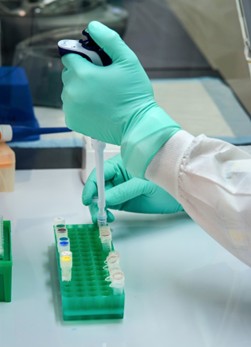
Scientific research has increasingly spilled over into mainstream conversations about health, wellness, and biotechnology. One area gaining particular attention is polyclonal antibodies, long regarded as indispensable tools in laboratory experiments but now generating interest beyond academic and research settings. Their role as versatile biological tools has made them invaluable in diagnostics, therapeutics, and even in supporting emerging consumer wellness trends. While their primary function remains rooted in scientific inquiry, the broader implications of these immune proteins are beginning to reshape how both professionals and the public think about health and innovation.
For decades, immune-based research has relied on these specialized proteins to identify and interact with specific targets within the body. They are created by exposing an animal’s immune system to a particular antigen, prompting the production of a diverse set of antibodies that can recognize multiple sites on the target. This response gives them a unique advantage over highly specific laboratory alternatives, as it allows for greater flexibility in detecting or neutralizing complex molecules.
Originally, their value was primarily scientific. Laboratories leaned on these tools to study disease processes, trace proteins, and understand signaling pathways. Yet as researchers uncovered their capabilities, a new picture emerged: one in which these antibodies were not just confined to sterile glassware and microscopes but could play a role in real-world applications across medicine, diagnostics, and even consumer health products.
One of the most significant areas where these immune proteins have made a mark is diagnostics. Their broad ability to bind to multiple parts of a target molecule makes them well-suited for rapid tests and screenings. For instance, pregnancy tests, infectious disease kits, and certain cancer diagnostics have all relied on these types of antibodies to provide accurate, easy-to-use results.
This adaptability became especially relevant in the last decade, as global health challenges demanded quick and reliable testing methods. When speed and efficiency mattered most, the flexibility of these biological agents allowed for the rapid development of testing kits that could be deployed at scale. While their role in such diagnostics is still largely behind the scenes, their impact is one that millions of people experience every time they rely on a test for reassurance or guidance.
These immune proteins have also been explored for therapeutic purposes. Their ability to recognize and neutralize harmful substances or pathogens opens the door to potential treatments in infectious diseases, autoimmune disorders, and even oncology. While monoclonal versions, which are engineered to target one precise molecule have often taken the spotlight in clinical medicine, polyclonal approaches offer unique advantages in certain cases.
For example, in conditions where pathogens mutate quickly, a diverse antibody response can sometimes provide a stronger defense than a single, narrowly targeted molecule. This has led to renewed interest in exploring how polyclonal therapies could complement or enhance existing treatments. Although much of this work remains experimental, the growing dialogue around immune-based solutions in healthcare has pushed these tools into new conversations among researchers, clinicians, and innovators.
What makes the growing buzz around these antibodies particularly interesting is how discussions are moving beyond purely medical contexts. Today, wellness enthusiasts are increasingly curious about scientific tools that once lived exclusively in research labs. Just as probiotics, collagen, and peptides made the leap from scientific jargon to everyday conversation, antibodies are beginning to appear in discussions about longevity, immunity, and personal wellness strategies.
Part of this shift is cultural: consumers are more scientifically literate than ever before, with access to vast amounts of health information online. As people explore new approaches to resilience and vitality, they’re intrigued by the mechanisms that underlie cutting-edge treatments and laboratory discoveries. Antibodies, because of their role in both disease defense and biomedical innovation, naturally draw attention. While their direct use in wellness products remains limited, the fact that they’re being discussed outside of traditional research environments underscores a larger trend - the merging of scientific exploration with consumer curiosity.
Several factors have converged to push these immune proteins into the spotlight.
New production techniques have made it easier and more cost-effective to generate antibodies with high specificity and quality. This has not only expanded their scientific applications but also made them more visible to industries outside the lab.
Global events over the past few years have dramatically increased public interest in the immune system. People are more curious than ever about how the body defends itself and how science can support that process. Antibodies, as natural defenders, naturally play a starring role in that narrative.
The versatility of these proteins makes them appealing across multiple industries, from pharmaceuticals to agriculture to biotechnology startups. As more use cases are discovered, their profile continues to rise.

Trends in longevity, performance optimization, and holistic health are pushing consumers to look beyond familiar supplements. Interest in molecules like peptides, stem cells, and antibodies reflects a hunger for innovation rooted in real science.
Of course, the increased attention brings important questions. Efforts to refine production methods, reduce reliance on animal models, and increase transparency are crucial for ensuring that innovation is balanced with responsibility.
There are also regulatory challenges. While antibodies have proven indispensable in research and diagnostics, their transition into consumer-facing products requires careful oversight to ensure safety and efficacy. Without appropriate frameworks, there’s a risk of hype outpacing reality, something the wellness industry has seen with other scientific trends.
As science continues to blur the line between the laboratory and the marketplace, antibodies are poised to remain a topic of growing importance. Diagnostic tools will continue to evolve, therapeutic applications may expand, and consumer awareness will only deepen. The future may hold new innovations in delivery systems, synthetic alternatives, or entirely novel uses we have yet to imagine.
For those watching the health and wellness landscape, the trajectory of these immune proteins offers a fascinating case study. They highlight how scientific discoveries can transition from niche laboratory tools to broader cultural conversations, influencing everything from clinical treatments to wellness trends.
Once confined to specialized laboratories, immune-derived proteins have emerged as symbols of the powerful intersection between science, health, and innovation. While they remain essential tools for research and diagnostics, their growing presence in mainstream discussions reflects a larger trend: the increasing integration of biotechnology into everyday life.
Whether shaping diagnostic breakthroughs, informing new therapies, or sparking curiosity in wellness communities, these immune proteins embody the evolving role of science in society. As interest continues to grow, they may well become one of the next major scientific concepts to capture the public imagination and transform how we think about the future of health.